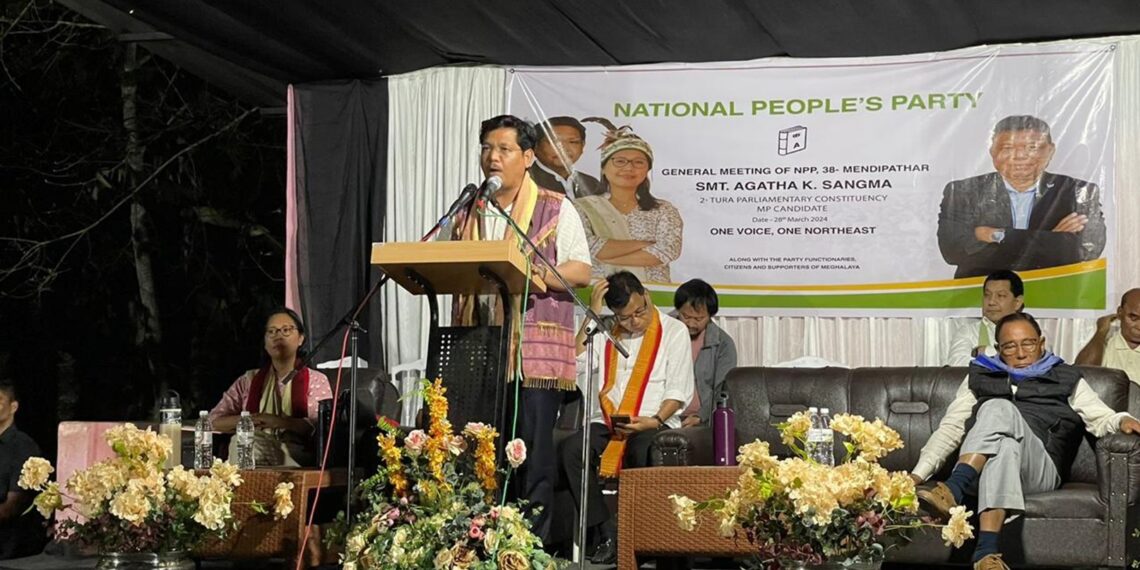SHILLONG: National People’s Party (NPP) Chief and Chief Minister Conrad Sangma has hailed incumbent Lok Sabha MP Agatha Sangma as the “ambassador of Meghalaya” in Parliament, championing the state’s growth and development agenda.
During his campaign in the NPP stronghold of North Garo Hills, Chief Minister Sangma highlighted the crucial role played by MP Agatha in advocating for Meghalaya’s interests in Delhi.
“Our MP, Agatha Sangma has been engaging with leadership in Delhi to ensure that we get maximum share of development projects. As an ambassador of Meghalaya, she takes up our proposals with the Prime Minister, cabinet ministers, and senior officials in Delhi to ensure their clearance,” he said.
The Chief Minister also credited Agatha for securing projects worth thousands of crores for Meghalaya under initiatives such as PM-DevINE, PMGSY, PMAY, MGNREGS, contributing significantly to the ongoing transformative development.
Highlighting the importance of electing an MP who can collaborate effectively with the state government, Sangma urged voters to grant Agatha the mandate to continue her work for the growth and development of Meghalaya.
Speaking about the positive governance under the NPP’s regime in Meghalaya, Sangma highlighted the development initiatives undertaken in the state, including the recently completed Damra – Bajengdoba road.
Stressing on the NPP government’s focus on socio-economic transformation, he detailed involvements in health, sports, and education sectors.
He highlighted the inclusion of Mendipathar college under the People’s College scheme, responding to the demands of the people of North Garo Hills.
The NPP chief also discussed the establishment of a Rs 185 plus crore bottling and processing unit by Varun Beverages (Pepsi Co) at Mendipathar industrial estate, signalling the government’s efforts to attract investments to Meghalaya.
Accompanying Sangma were Deputy Speaker Timothy D Shira, PHE Minister Marcuise Marak, MLA Marthon Sangma, and candidate Agatha K Sangma for rallies at Chisimari, Keragalram, and Gajingpara.















